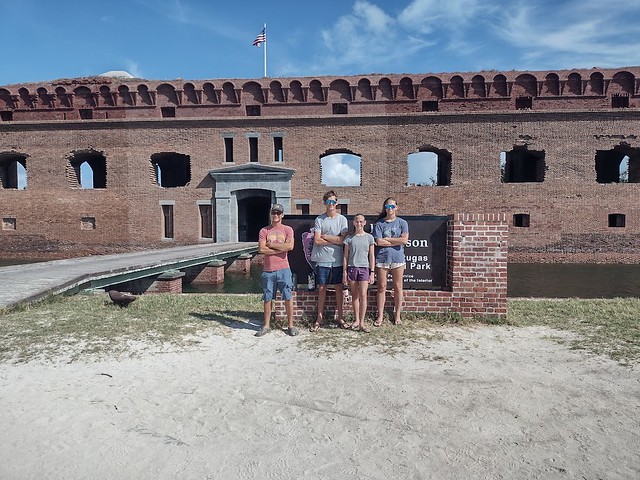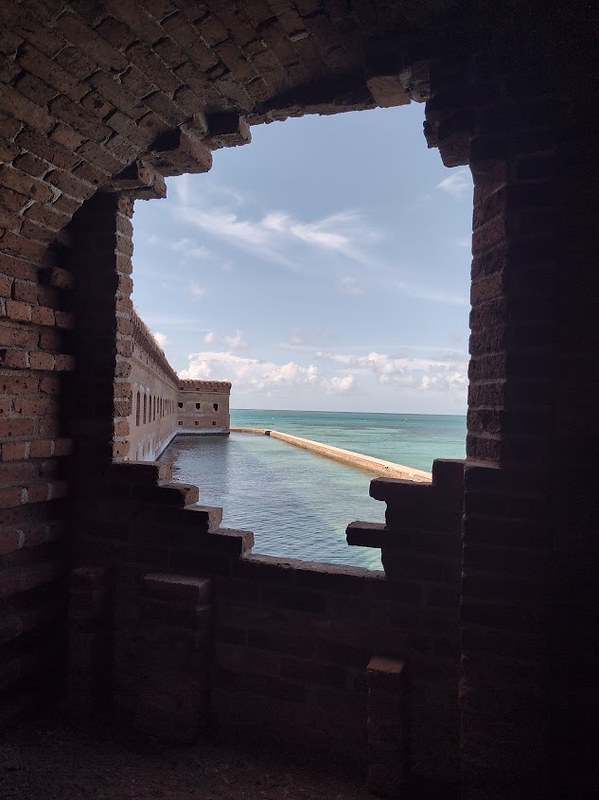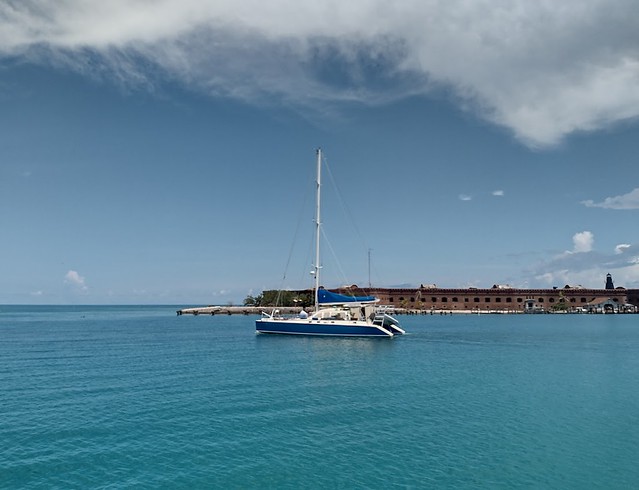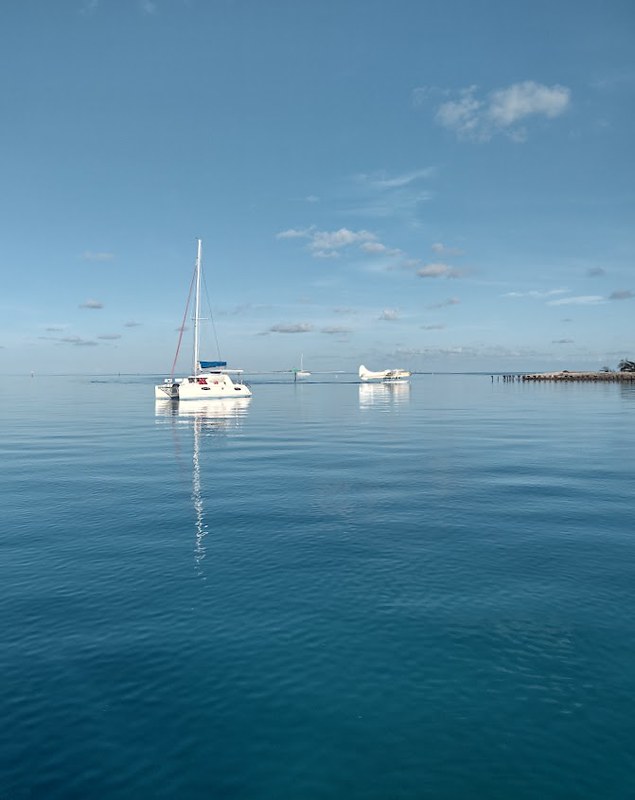Take Two and Lovely Cruise (with Eli and Skipper aboard) spent a week at Dry Tortugas National Park, anchored near Fort Jefferson, a Civil War-Era Brick fort about 70 miles west of Key West. It was used as a prison, and this is an essay about its most famous prisoner.
On April 14, 1865, during a play at Ford’s Theatre, John Wilkes Booth shot President Lincon in the head. Did anyone conspire with Booth in the assassination plot? Perhaps we will never know for sure, but he certainly had help afterward. After firing his gun, Booth jumped off the balcony and broke his leg. He got away and ran to the house of Dr. Samuel A. Mudd, who set his leg and let him rest. Booth snuck away in the early hours of the morning with his friend David Herald but when federal agents searched for Booth at Mudd’s house, he said he did not know who or where Booth was, though it has been established that the two men knew each other from previous meetings. When they found Booth and Herald in a barn at Garret’s farm, Herald surrendered but Booth resisted arrest, so they set fire to the barn and later shot Booth, killing him and destroying any chance of finding out his secrets.
Back in Washington D.C., eight conspirators, people who knew Booth or had helped him in some way, were questioned and tried in a military court. They were all found guilty and four were hanged, including the first woman ever to be executed in the United States. Four were sent to prison and one escaped. Dr. Mudd was given a life sentence to be carried out at Fort Jefferson on Garden Key in the Dry Tortugas. Mudd ended up only serving four years because he was pardoned by President Andrew Johnson in 1869, after heroically treating patients during a severe yellow fever outbreak at the fort. When visiting Dry Tortugas National Park, you can still see the cell of Samuel A. Mudd, the famous doctor who set the leg of the man who killed the 16th president of the United States of America.








